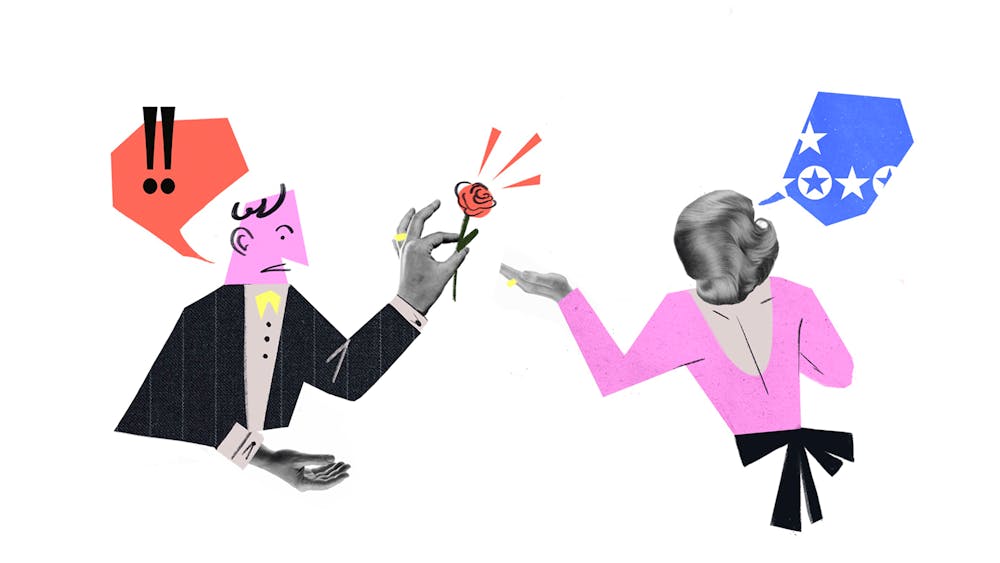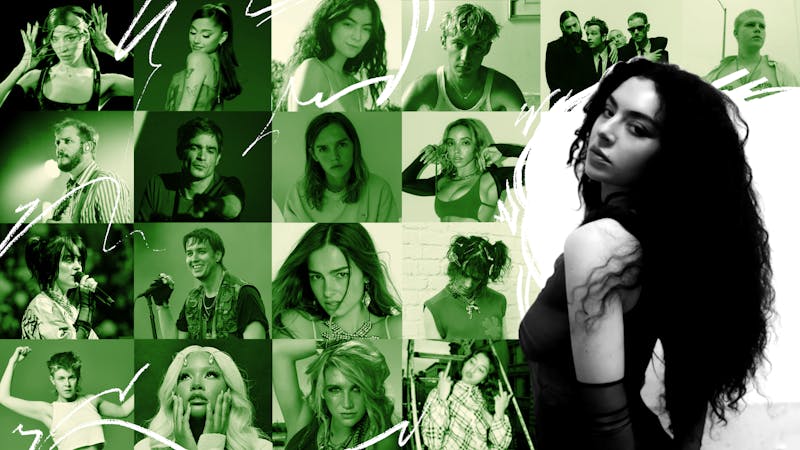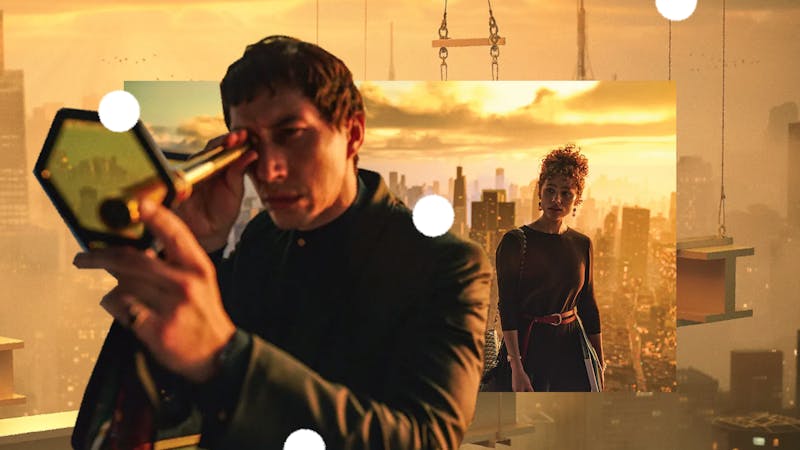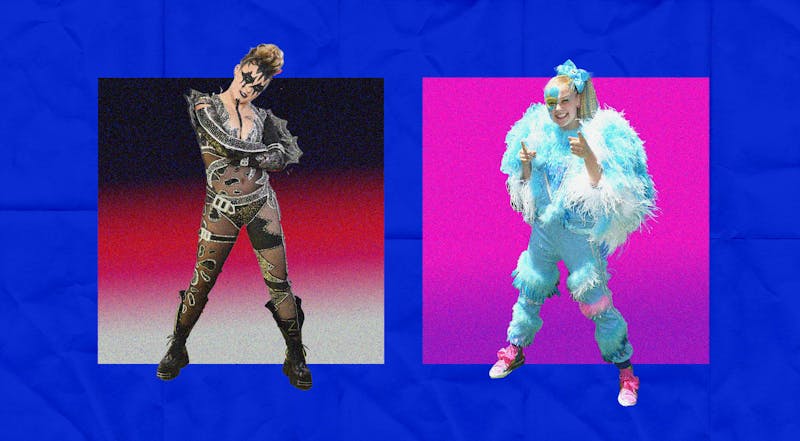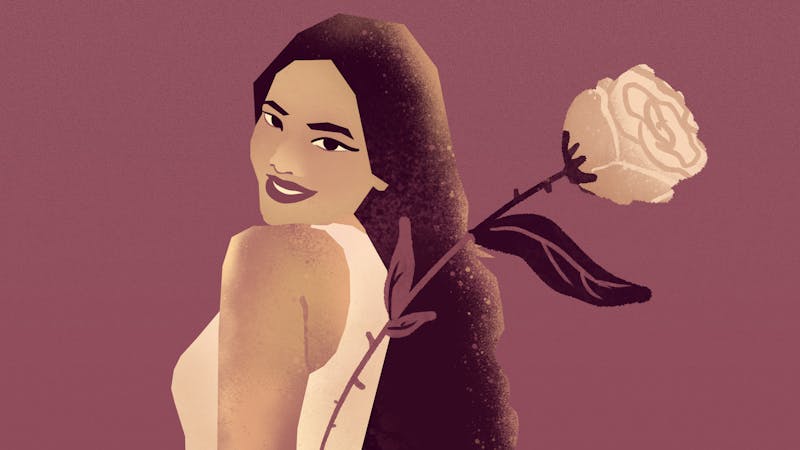I have been single all 19 years of my life, and tuning into The Bachelorette every Tuesday night this summer only reminded me of that fact. Several times, I found myself thinking about how lucky Jenn Tran must feel to have a sea of men vying for her affection and how excited she must be knowing that she’ll walk away with a life partner. But after doing my own research on the show and learning that most couples from the show fail to stay together in the real world, I slowly realized that the show portrays an idealized, unrealistic image of love by avoiding one topic: politics.
Much like politicians, contestants on The Bachelorette are constantly competing for attention and affection. Cameras cling close to them like dark shadows, swarming their faces every ticking second of the day. Grand romantic gestures are carried out with poise, precision, and calculation, similar to how politicians carefully curate their public persona and plan out every movement and interaction. We see these characters grow (or fall from grace) on the screen, either “keeping the main thing the main thing” (as featured prominently on TikTok) or engaging in ego–boosting altercations with other men on the show. We, in this political analogy, are the voters who deliberate the contestants’ every intention, deciding whether to love them, idolize them, or despise them.
Yet as much as The Bachelorette and its companion shows—The Bachelor, The Golden Bachelor, The Golden Bachelorette, and Bachelor in Paradise—mirror the current political landscape, one thing that contestants never seem to discuss on the show is politics itself. Questions like “Who did you vote for?” or “What did you think of the overturning of Roe v. Wade?” are never brought up—or, even if they are, never emphasized in the production of the show. Contestants pour their souls out to the show lead over everything from past loves and future dreams to deep passions and jaw–dropping experiences, yet they consistently skirt around one of the most defining conversations of them all: politics.
This avoidance of real–world issues isn’t unintentional. The show is meant to be an impenetrable bubble. Contestants aren’t allowed to have access to phones, computers, or TV, as access to the outside world diverts their attention away from what they supposedly came on the show for—the opportunity to find love. “You’re completely and fully immersed and focused on connecting and your relationship,” Bibiana Julian, a contestant on the Season 22 of The Bachelor, said in an interview with People. But while this bubble does give contestants an opportunity to focus on relationships, it also fosters an idyllic environment that detaches them from worldly events and real–life considerations. Take the most recent Bachelor, Joey Graziadei, as an example: He was so trapped in the bubble that he forgot to pay off his credit.
This detachment becomes a critical fault line when the lead and her final pick enter back into the real world as an engaged couple. Romantic escapades—helicopter dates and exhilarating kisses in the rain—are all a part of the constructed world of this show that acts as a scaffold to sustain an idealized narrative of love. According to several contestants, the show doesn’t explicitly prohibit the discussion of politics but does prefer to maintain an apolitical stance; conversations surrounding politics are certainly never encouraged. The final three picks of the show have the opportunity to go to the Fantasy Suites—an overnight date where they are able to be alone with the lead for the first time—and both the lead and the contestant often dialogue in free expression because of the absence of cameras. Jenn Tran, the most recent Bachelorette, used the space as an opportunity to “talk about things that you can’t talk about on camera—like politics, religion, money, financial–wise, job,” asking questions like “are you going to be an influencer, or are you going to continue a regular day job?” Yet, this begs the question: Shouldn’t these important conversations, both surrounding politics and other pivotal aspects of life, be held in the beginning stages of a relationship rather than right before an engagement?
Unlike Jenn Tran, other Bachelorettes didn’t fully take advantage of the Fantasy Suites to the same extent. Becca Kufrin, the lead of Season 14 of The Bachelorette, told Business Insider that if she could redo the show, the first thing she would’ve asked contestants is who they voted for in the presidential election. This revelation came after the winner of her season, Garrett Yrigoyen, was exposed for liking Instagram posts that mocked transgender people, immigrant children, and a school shooting victim. Yrigoyen apologized for liking the posts, and he and Kufrin continued dating for a couple of years. But it wasn’t until the summer of 2020, when George Floyd was murdered, and Black Lives Matter protests dominated the nation, that he and Kufrin began having deeper conversations about their political views.
“I was like … what’s important to me? What’s important to him?” she told Business Insider. “Are we going to be able to make a lasting relationship for a lifetime off of our differences?”
They weren’t able to. Kufrin and Yrigoyen broke up in September 2020, with Kufrin hinting at the reason for their breakup being their political differences. Yet, these differences were never hinted at on national TV. What we saw was a picture–perfect world in which contestants never discussed politics, which can create unhealthy narratives of what relationships should look like. It’s no surprise that only nine of 47 couples from The Bachelor and The Bachelorette franchises have stayed together after the show’s end; perhaps the lack of conversations about personal differences contributes to it.
Clearly, diverging political views can have dangerous implications. After all, politics isn’t merely about ticking off a box but aligning with ideologies that reflect your core values. This raises several questions: is it possible to love someone who is indifferent about the issues that you’re passionate about? Can you love someone who disagrees with you on fundamental human rights issues? And even if you and your partner are willing to accept your political differences, will their family accept your beliefs? How can you determine long–term compatibility without the answers to these questions?
The nuances of dating and politics extends beyond just the confines of reality TV. Dating apps like Tinder, OkCupid, Hinge, and Bumble let users filter profiles by political affiliations. There are even apps that are targeted towards people of specific political parties—like Lefty, which aims to garner a progressive consumer base. Politics have become an increasing indicator of compatibility; shared values are the cornerstone of lasting relationships, and surveys have shown that the majority of people feel that differing political views are a dealbreaker in a relationship. With the United States becoming increasingly polarized in recent years, especially due to Donald Trump’s presidency, the rise of the #MeToo movement, the overturning of Roe v. Wade, and racial turmoil, politics have become more ingrained in everyone’s daily lives.
This isn’t to say that people shouldn’t be dating other people just because of differing political views. However, it is to say that that the U.S. political landscape is changing, and this effect is unavoidable in everyone’s personal lives. If there’s anything The Bachelor franchise has shown us, it’s that saving tough conversations for later lays a precarious foundation, building relationships up for their own potential downfall. By sidestepping politics, The Bachelor franchise constructs a false narrative of love that fractures in reality. It’s a lesson for all to learn that real love is not just about chemistry—it’s about confronting hard conversations and persevering through them. Without that, no romance is destined to last.
